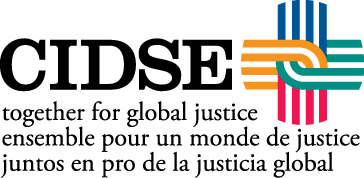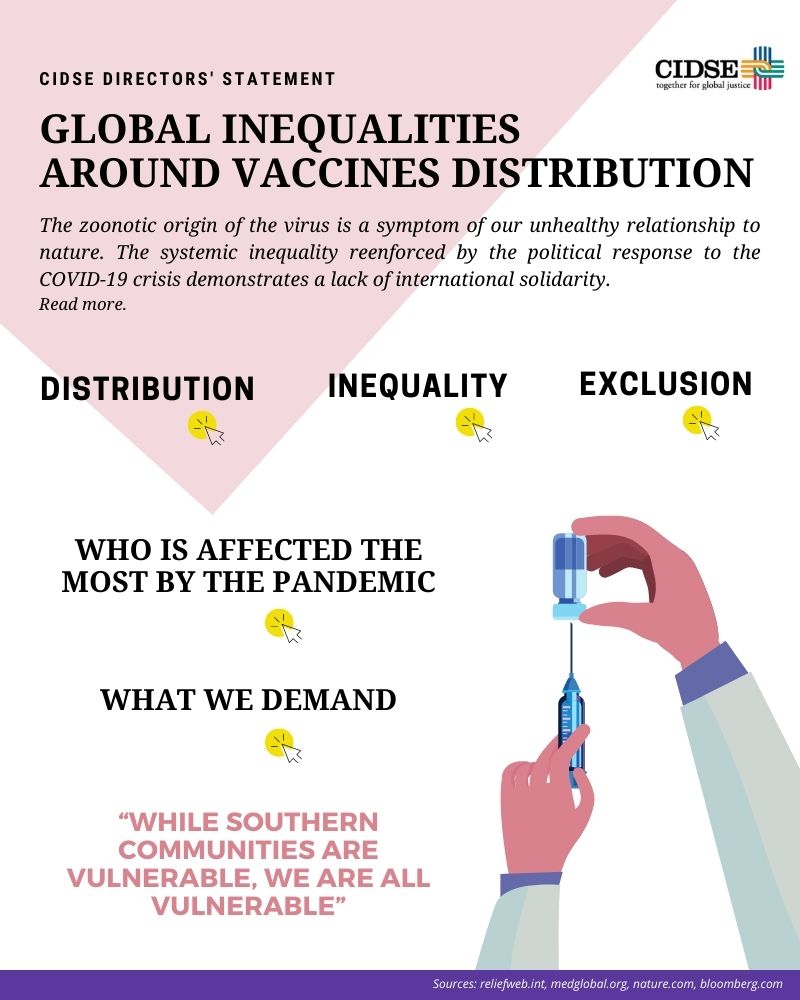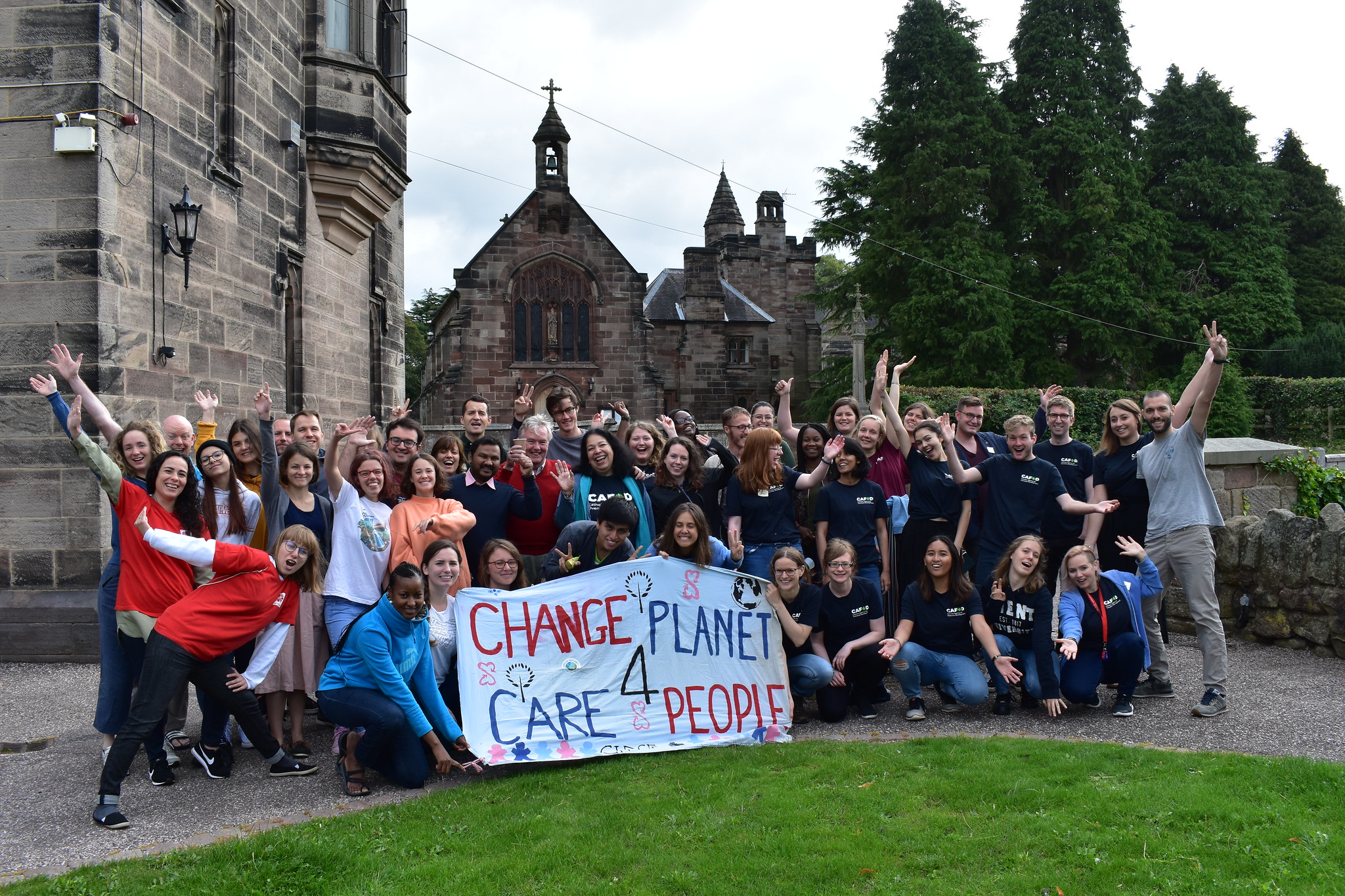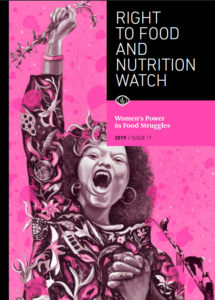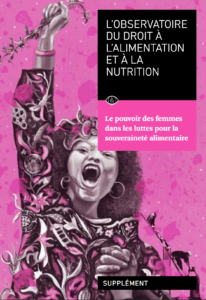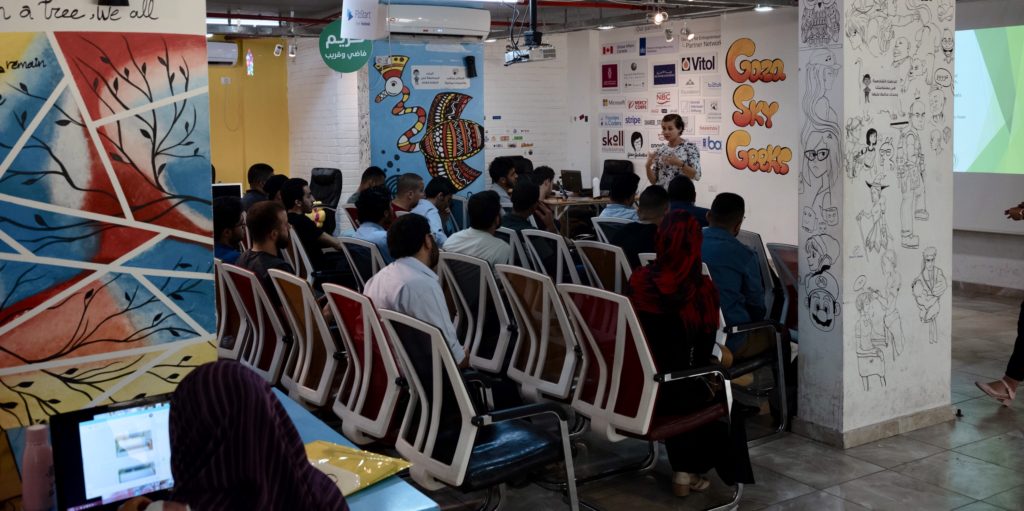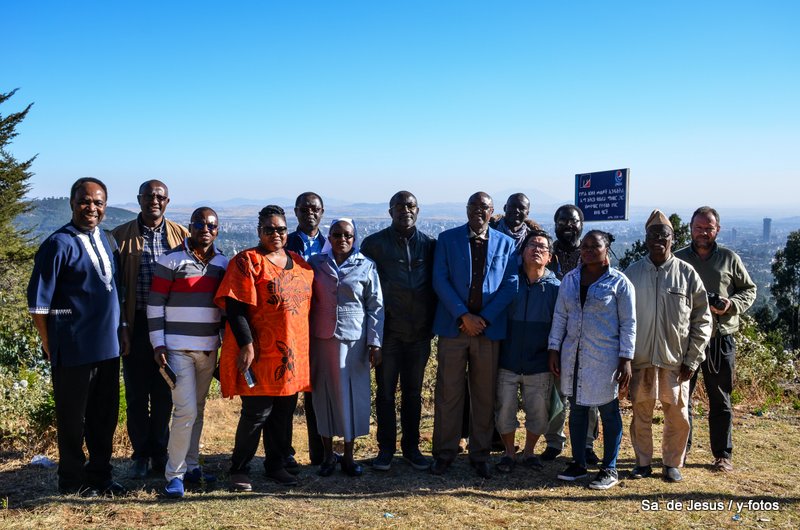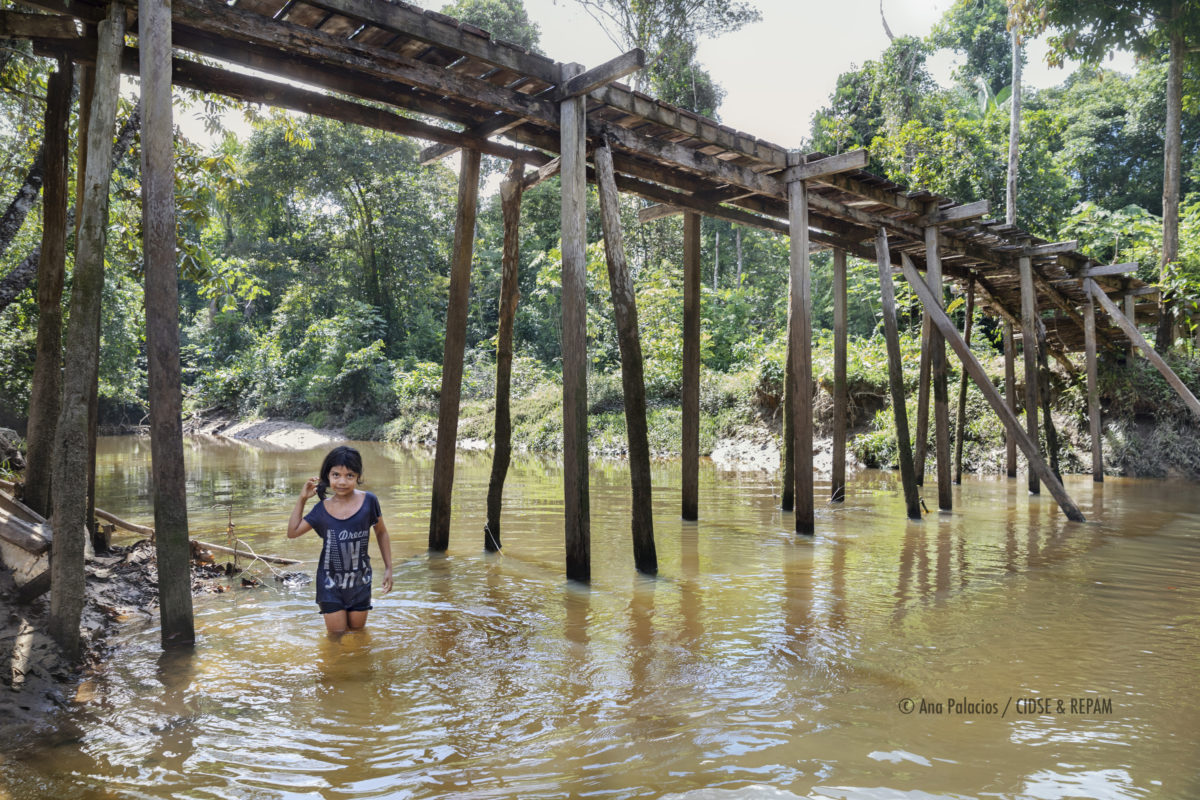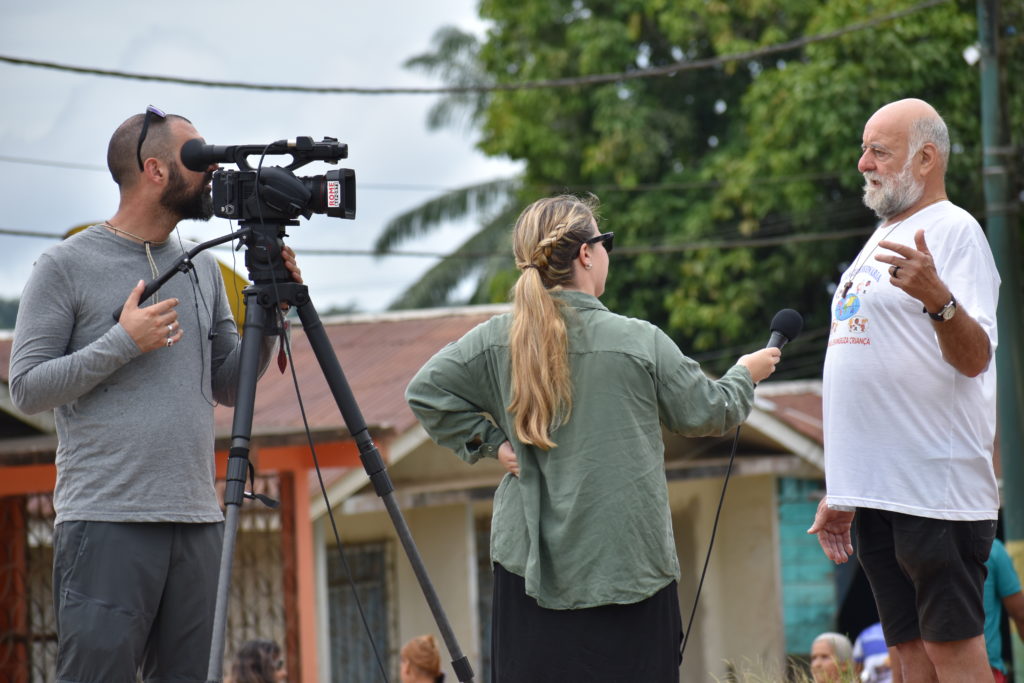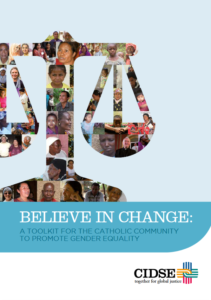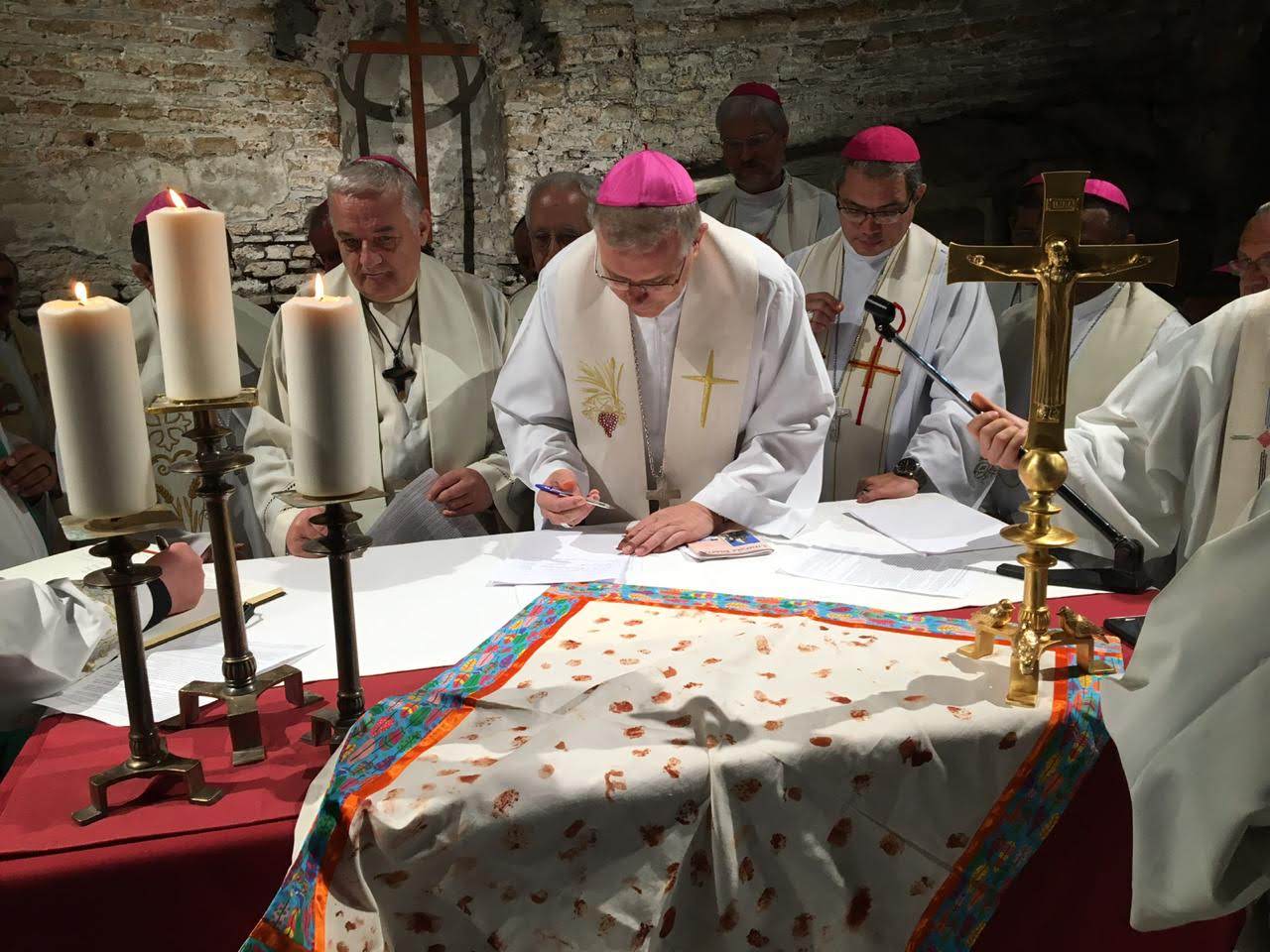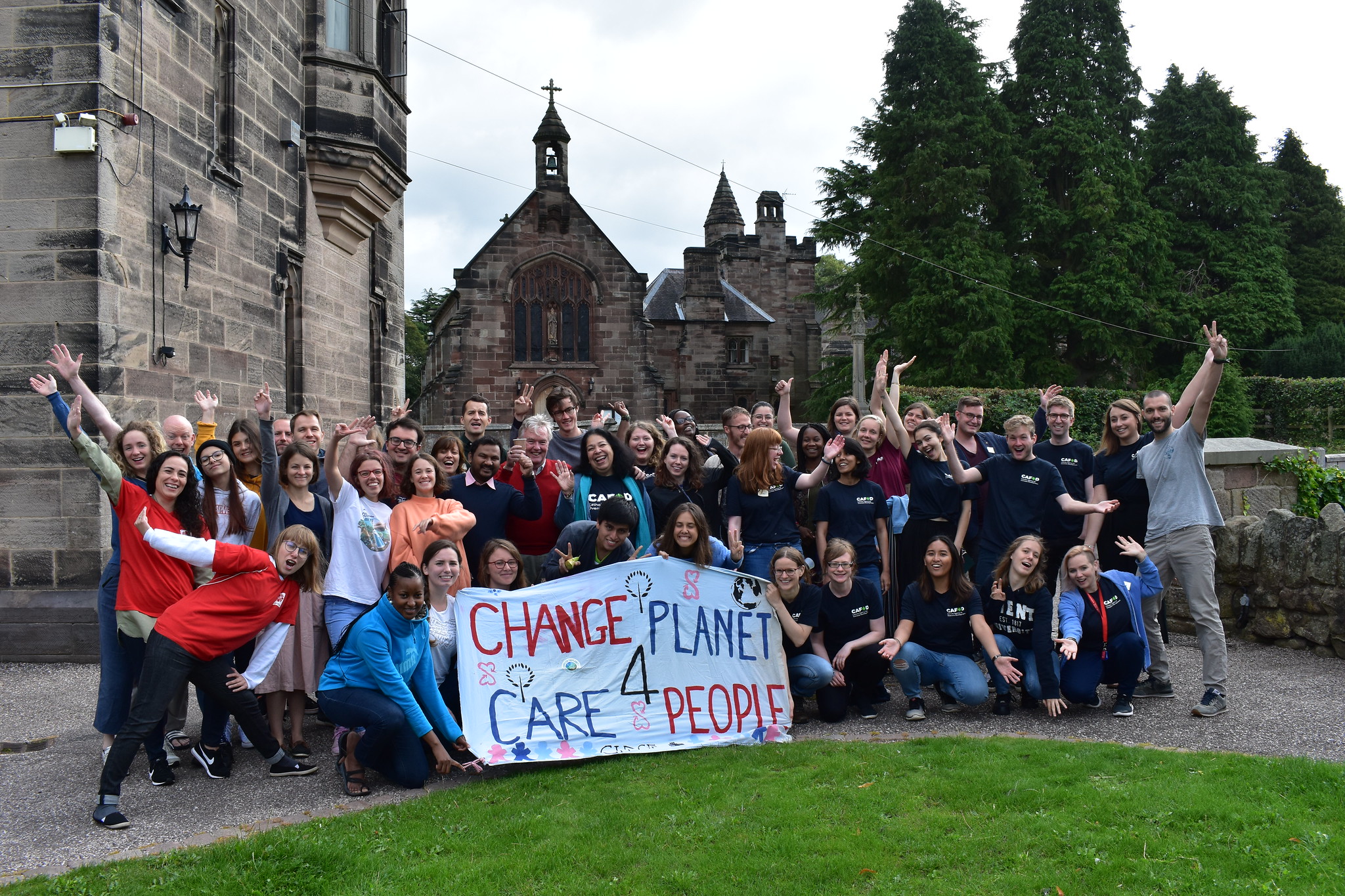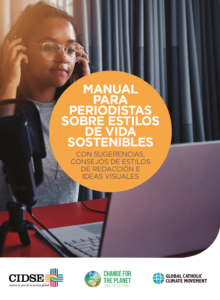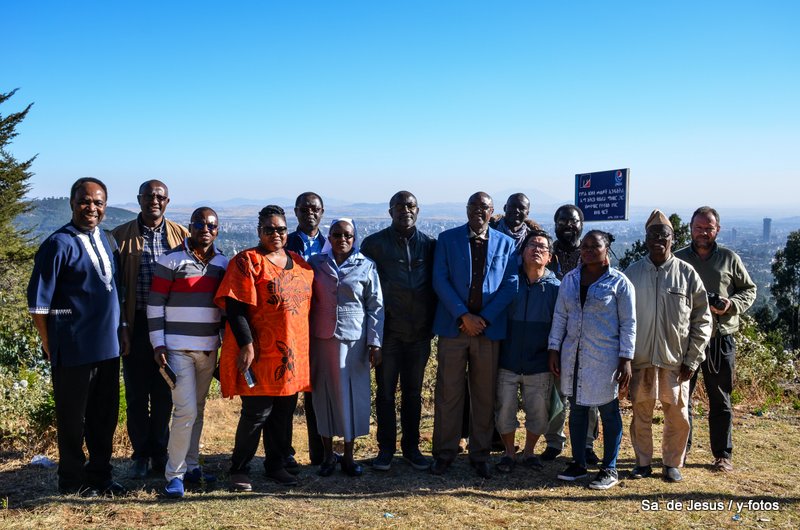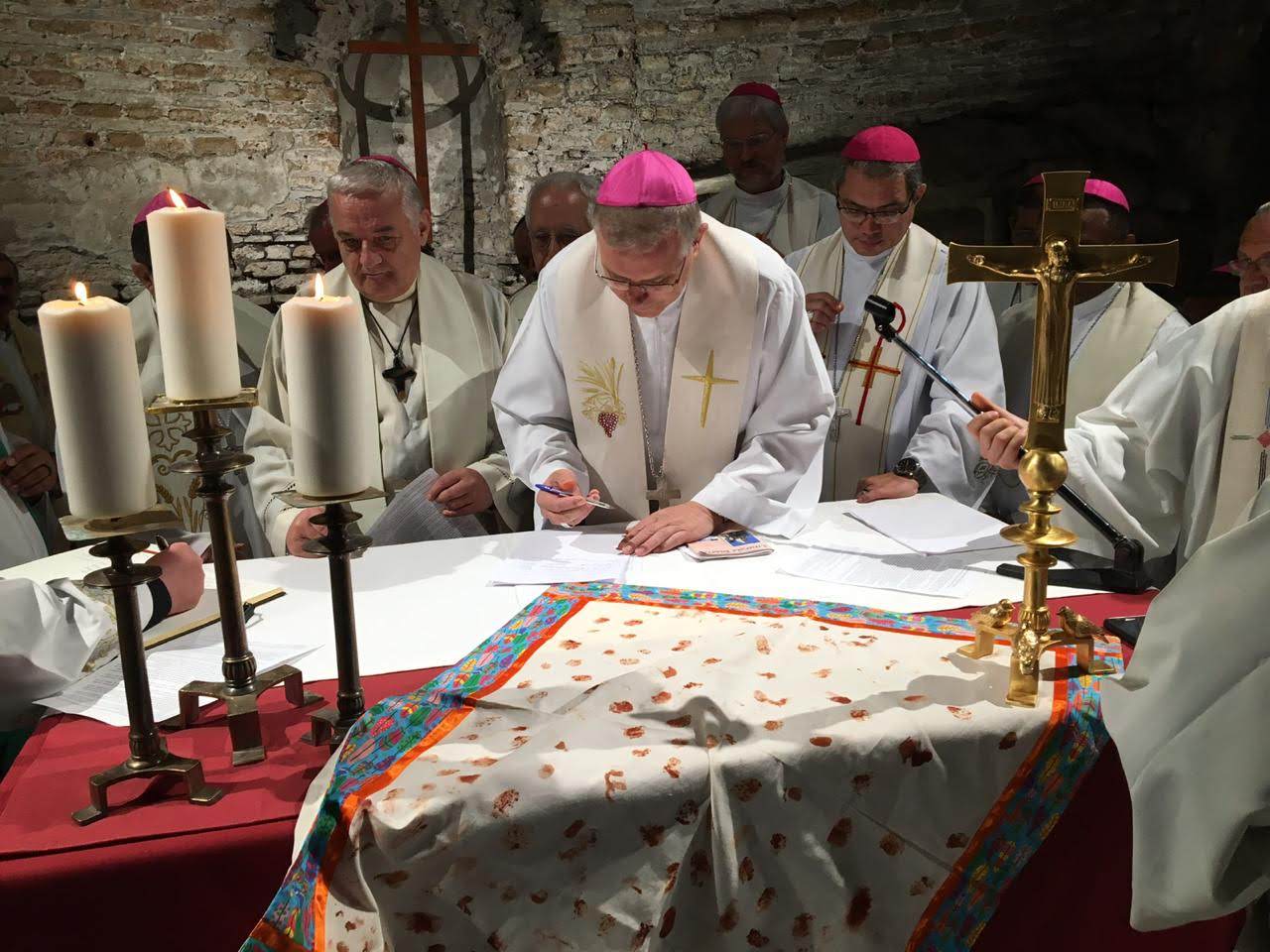Annual Report
2021FOREWORD
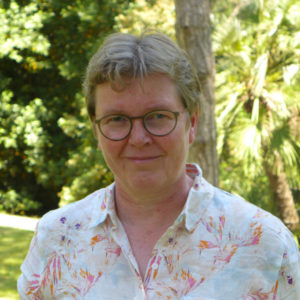
© CIDSE
2021 has been another challenging year, to say the least. The coronavirus kept circulating and the impact on our societies and our well-being has been dramatic. There have been conflicts, like the terrible one tearing Ethiopia apart and leaving us powerless and outraged.
For the CIDSE network, it has been another year of disruptions, cancellations, changes of plans; yet of great commitment despite it all.
We concluded the year slowly starting to assess the many impacts of the pandemic, not even aware of the dark cloud that the following year was about to carry, with a full-blown war in Europe.
The pandemic kept disrupting all our lives in unprecedented ways, though not in equal measure. Once again, the most vulnerable in our societies, all around the world, carried the brunt. If there is one thing the pandemic has made clear, it is that all and everything is connected. Economic inequality, social injustice, political polarisation, climate change and growing displacement: the crises that we face are not isolated. They are linked by structural systems of injustice and exploitation.
In June, we delved into these systemic connections at our second Systemic Change Forum, a crucial milestone for the CIDSE network, which has advanced our systemic thinking looking at key issues such as transformative partnerships, communication and organisational coherence. Learnings from this event will be long-lasting and invite us to keep evolving and challenging the colonial patterns that still condition our thoughts and actions.
Together with our partners and our allies, CIDSE has pursued its call for the transformation of our current economic model into one that promotes human flourishing on a thriving planet. In a world where ‘faster and bigger’ still set the standard, we continue asking the question: can it be done with less? In a world fraught with misunderstanding and fear, CIDSE is looking to connect with each other, with the world and with our planet.
We were present at COP26 in Glasgow, hosted by our member SCIAF, fighting for climate justice despite the fact that many of our partners couldn’t be there with us. We advocated in international spaces for better regulation for corporations and respect for human rights, we stood on the side of those who saw their lands grabbed and their territories at risk, we offered spaces for women to share their challenges around gender equality, we brought youth together to foster commitment on ecology and spirituality, we challenged dangerous narratives around food systems.
Catholic Social Teaching keeps inspiring us in our efforts to secure a better future for the people and the planet. In his Laudato Si’ encyclical, and more recently in Fratelli Tutti, Pope Francis urges us to view both the human and the ecological crises through an integral approach. We continue answering his call, united by the belief that social justice is key to our common future, and that international solidarity matters.
Indeed, we need to open our awareness to what is going on in the world. We need to actively work together on all levels – from local communities to the State, from organisations to individuals. Embrace our differences and understand them as a source of creativity. Start a dialogue and discover commonality in diversity. Even in difficult times, we should not let ourselves be discouraged by setbacks and failures. I invite you to read our annual report and discover how we continued striving for a more sustainable and just world. I hope you will enjoy learning about our achievements and challenges.
Lieve Herijgers
CIDSE President
Best of 2021
Acting for change
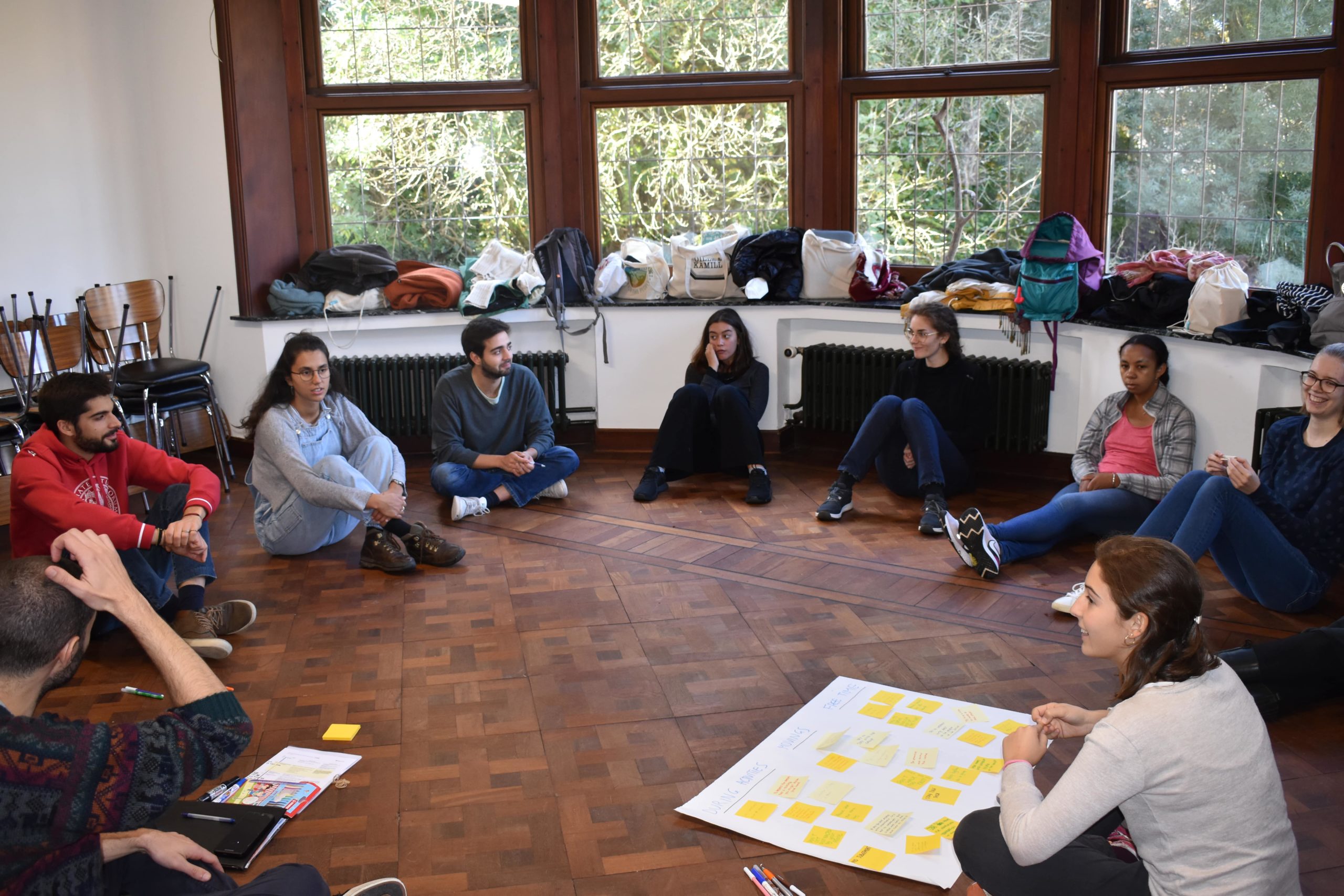
Connecting
CIDSE co-organises and participates in spaces for its members, allies and partners to exchange knowledge and experiences. These meetings and platforms of exchange facilitate the real relationships needed for practicing solidarity across movements, and accelerate impact by learning best practices. These spaces also provide a process for us to accompany social movements as they connect with different actors and are introduced to opportunities to participate in policy processes.
Here are some highlights of CIDSE’s connecting work in 2021:
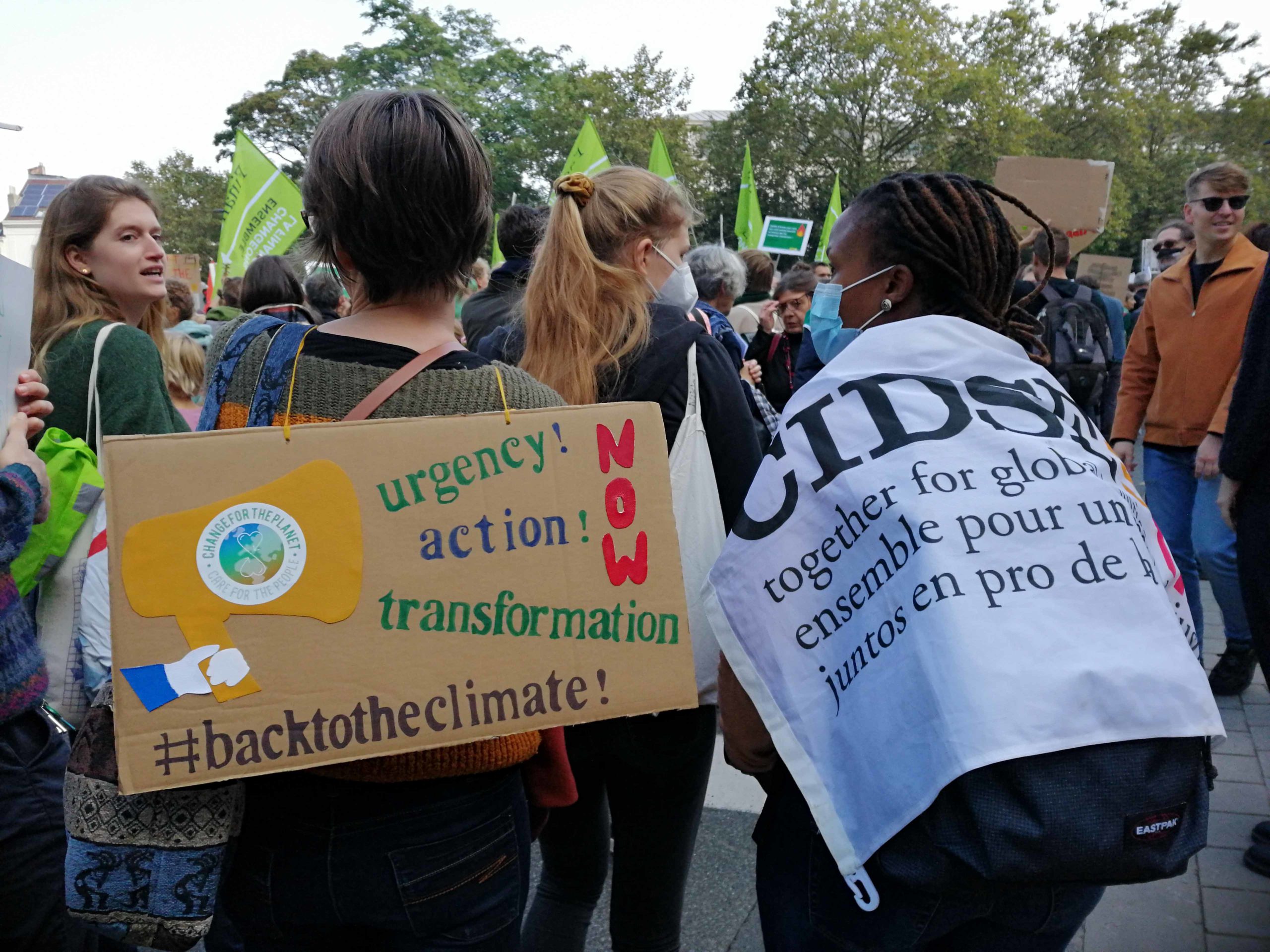
Influencing
We lobby high-level decision makers and participate in policy-making processes at crucial moments. The policies we push for are informed by the knowledge and experience of our partners and members, and we in turn can provide them with our observations of the developments of international policy processes, so that together we can take advantage of opportunities for transformative policies.
Here are some highlights of CIDSE’s advocacy work in 2021:
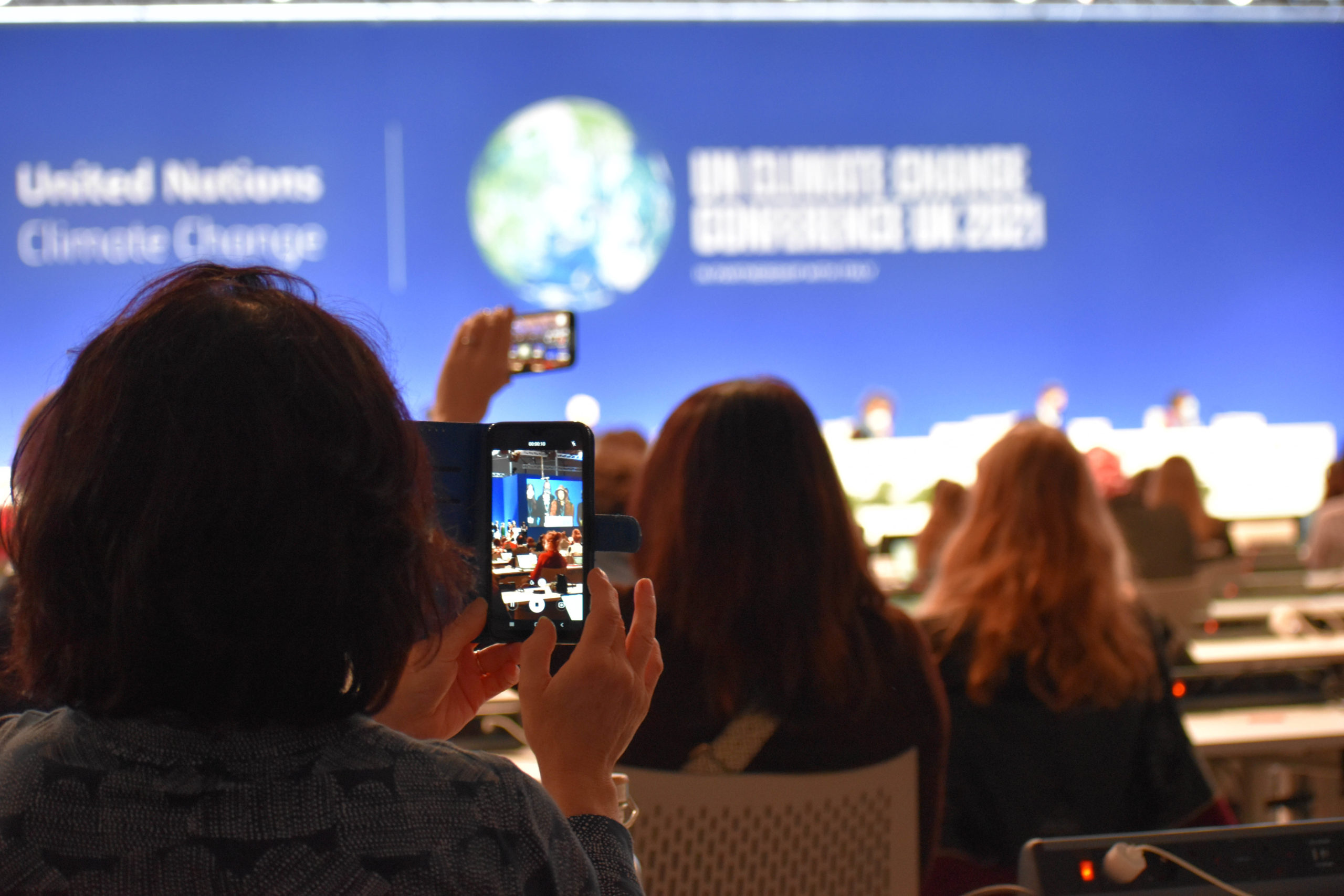
Storytelling
CIDSE has been experimenting with new forms of media over the years, to bring our perspectives and proposals to targeted audiences to challenge mentalities and open the way for fresh dialogue. Through the use of storytelling, we can envision new alternatives, we learn to articulate clearly our positions, and we express our connection to others and our common home.
Here are some highlights of CIDSE’s storytelling work in 2021:
Coming up
2022
February
AU-EU Africa summit & People’s Summit
Release of EC Corporate Sustainability Due Diligence Directive proposal
March
Latin American Caravan for the defense of integral ecology in extractive times
APRIL
International Youth Sustainable Camp, Portugal
JUNE
West African Partners’ lobby tour and launch of SIAT land grabbing policy brief
JULY
Launch of African Climate dialogues
SEPTEMBER
Award ceremony International Photo competition “We sow the Future”
OCTOBER
Lobby tour with protagonists of documentary on Women Human Rights’ defenders
UN Binding Treaty Session, Geneva
NOVEMBER
COP27, Sharm el-Sheik
Governance structures and finance
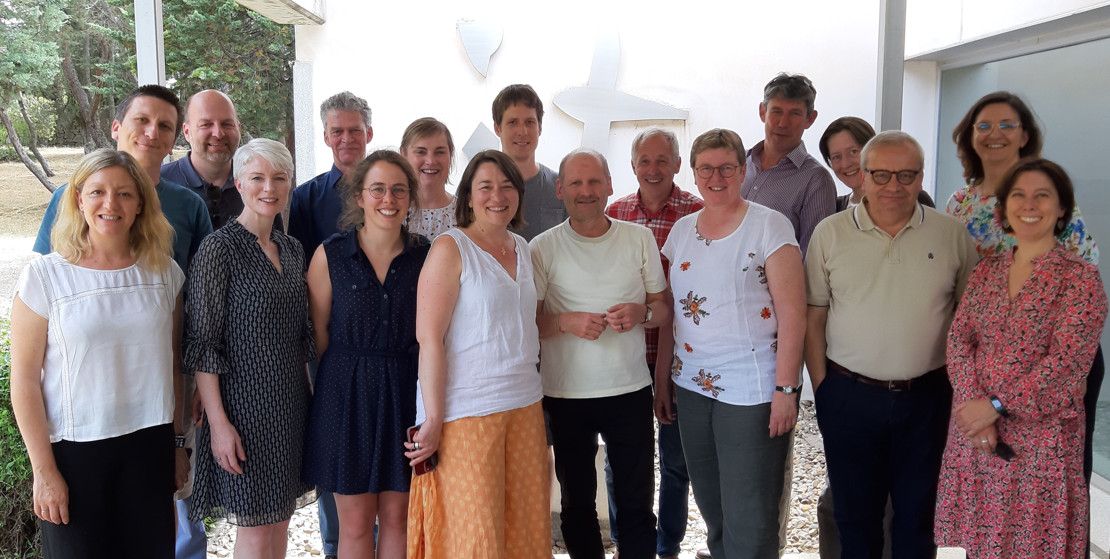
BOARD OF DIRECTORS
The Board of Directors is composed of the directors of the 18 Member Organisations. The Board meets twice a year and is responsible for the general running of CIDSE, particularly for reviewing current activities and formulating policies for the future.
- In 2021, CIDSE paid farewell to Susana Refega (FEC/Portugal), Patrick Godar (Partage lu/Luxembourg) and Gianni Del Bufalo (FOCSIV/Italy) and welcomed their respective successors: Manuel Martins, Denise Richard and Paolo Chesani.
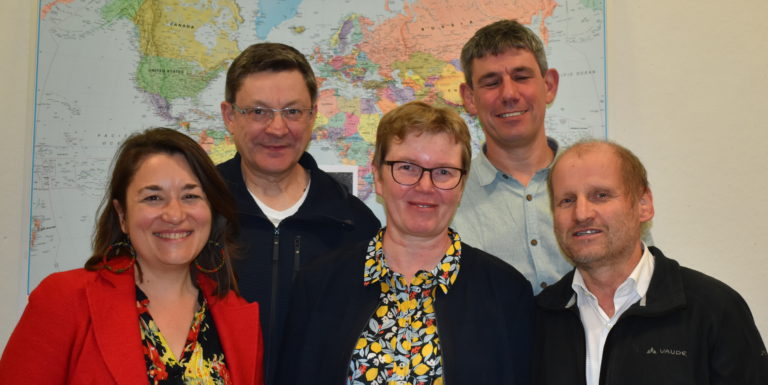
EXECUTIVE COMMITTEE
The Executive Committee is the implementing and supervising arm of the Board of Directors.
- President: Lieve Herijgers (Broederlijk Delen)
- Members: Ricardo Loy (Manos Unidas), Patrick Godar (partage.lu), Msgr. Pirmin Spiegel (MISEREOR), Alistair Dutton (SCIAF), Caoimhe de Barra (Trócaire)
- Ecclesiastical Assistant: Mgr. A. Tesfaselassie Medhin (Eparchy of Adigrat/Ethiopia)
- Interim Treasurer: Dunie Wijbenga (Cordaid)
- Secretary General: Josianne Gauthier
The Ecclesiastical Assistant, the Treasurer Secretary and the General are non-voting members.
WORKING GROUPS
CIDSE member agencies work together in working groups, platforms and fora on the issues defined in the strategic plan. The CIDSE Secretariat facilitates the working groups and ensures communication between the member agencies and the overall coherence of CIDSE’s work.
FINANCE
The CIDSE network is funded by membership fees and additional resources from its members for special projects.
In 2021, CIDSE received external funding from:
- The European Commission Directorate-General for International Partnerships (DG INTPA) as part of the Framework Partnership Agreement: “Experience, Learning, Sharing through joint action and strategic planning to achieve global justice.” (2019-2023).
- The KR Foundation, for the “Change for the Planet – Care for the People” initiative (2020-2022).
- The Porticus Foundation, for the project “Transformative advocacy towards integral ecology – Development of a new Monitoring, Evaluation and Learning (MEL) framework for CIDSE and its members” (2021-2023).
Income 2021
- Membership fees: € 1,036,435.00
- European Commission Framework Partnership Agreement: € 390,565.00
- KR Foundation: € 165,527.30
- Porticus Foundation: € 100,000.00
TOTAL INCOME: € 1,692,527.00
CIDSE is grateful to all its network members as well as to the European Commission, the KR and Porticus Foundations who have made it possible to carry the work presented in this report.
Expenditures 2021
Advocacy*:
€ 1,102,176.99
Communication and networking events:
€ 313,440.51
Administration and Secretariat:
€ 119,311.15
TOTAL EXPENSES: € 1,534,928.65
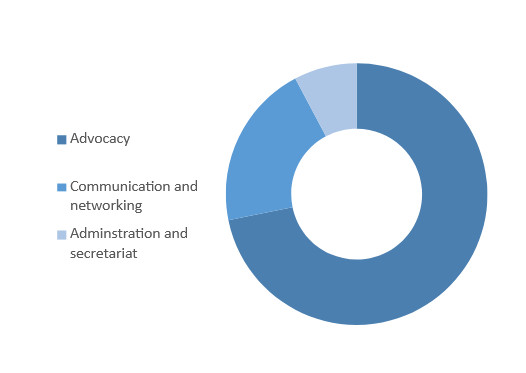
* CIDSE’s advocacy work covers the following thematic areas:
Systemic change, Communities regaining control over the commons, Facing climate change: Just and sustainable models for food and energy, sustainable lifestyles.
The CIDSE Secretariat also coordinates the following project:
Israel-occupied Palestinian territory: € 59,159.18
CIDSE’s financial year begins on on 1 January and ends on 31 December. The 2021 financial statements were audited by an external auditor, Clybouw Achiel, Andre & Co bvba, Belgium, in accordance with the financial reporting framework applicable in Belgium.
About CIDSE
WHO WE ARE
We are an international family of Catholic social justice organisations working for transformational change to end poverty and inequalities, challenging systemic injustice, inequity, destruction of nature and promoting just and environmentally sustainable alternatives.
We work for a society based on social, economic and gender equality and solidarity, where the economy is at the service of society and functions within planetary boundaries. We aim at a fairer share of and limits in the use of global resources, and democratized governance where people regain control over their choices in economies based on the commons.
We work for reforms with transformative potential: to move away from fossil fuels and extractivism, to limit global temperature rise below 1.5 degrees, to promote the right to food and agroecology, to regulate business to enforce human rights, to secure sustainable finance and fair wealth distribution, to support local communities to speak for themselves, to confront gender inequalities, and to enable sustainable ways of living. Further information about our various areas of work can be found on the CIDSE website.
To make this happen we contribute to global movements and alliances of change, promote peoples’ solutions and alternatives and advocate at the international level.
Our Members
CIDSE brings together 18 member organisations from Europe and North America.

Collaborators
CIDSE works closely with diverse local and international alliances and organisations such as Caritas Internationalis, Caritas Europa and Franciscans International.
It is a member of Concord, Climate Action Network-Europe, Laudato Si’ Movement as well as a founding member of the European Laudato Si’ Alliance (ELSiA).
During 2021, the Secretariat continued to strengthen its collaboration with other networks and alliances such as: COMECE (Commission of Bishops’ Conferences of the European Community) and JESC (Jesuit European Social Centre); we hosted three interns through the JESC European Leadership Programme.
SECRETARIAT STAFF
The CIDSE Secretariat facilitates and coordinates the common efforts of its members, represents CIDSE at the EU and international levels and undertakes advocacy activities and other initiatives in collaboration with its members to contribute towards systemic change and global justice.
The Secretariat is organised into teams that coordinate various working groups in order to achieve its objectives:
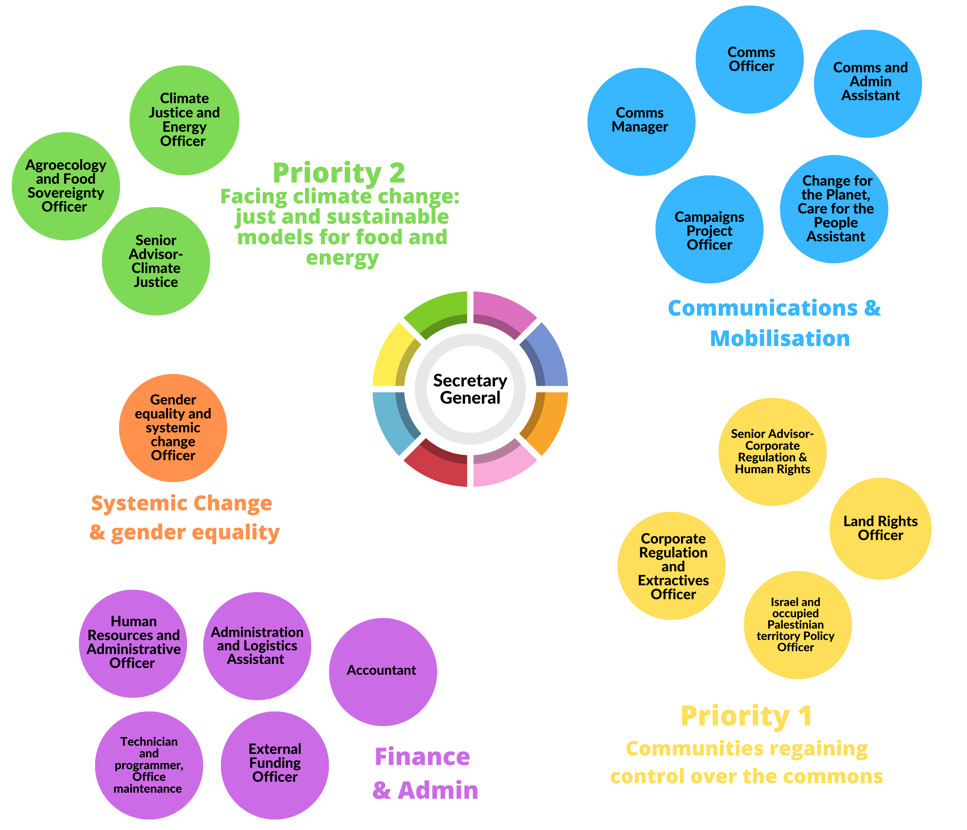
We thank Elise Bouget, Alessandro Cerri, Sladana Lovric, Dzhevid Mahmud, Chiara Martinelli, Mireille Nzuzi, Ida Paraskeva, Anya Verkamp and Madeleine Woerner for their valuable contributions to CIDSE’s work and mission.
External support
Wim Hendrix, Finance Consultant
Bea Lambrecht, Human Resources Consultant
